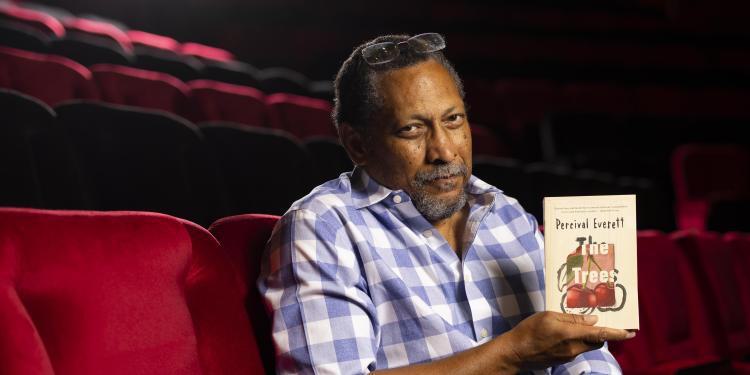If you cross Truman Capote with Mark Twain, you will just about have the style of novelist Percival Everett.
His latest, "The Trees," is about a series of similar and baffling murders in rural Mississippi. Everett manages to insert humor into a multiple murder mystery. Almost constant humor. Almost like Huck Finn and Tom Sawyer keep discovering weird murders.
Everett is bringing copies of his novel and speaking about it on Tuesday at the University of South Alabama in Mobile. He speaks and signs books at USA's Student Center Ballroom at 6 p.m. The event is free. No ticket or RSVP is needed.
The Everett appearance is the keynote of the 2024 author's season for the Stokes Center for Creative Writing.
"The Trees" was published by Graywolf and nominated for the 2022 Booker Prize. Everett will read a passage from the novel and explain the dynamics of the unusual plot. Find the book here.
Everett, 67, is now a professor of English at the University of Southern California. He has also written novels, "Erasure" (2001) and "I Am Not Sidney Poitier" (2009).
"The Trees" is set in the small town of Money, Miss., an unincorporated community in the Mississippi Delta country near Greenwood. A real town. The novel follows a series of murders that seem to have identical patterns.
In Money, a white man called "Junior" is found dead in his own home with the body of an unknown black man beside him. When the bodies are taken to the morgue, it is soon discovered that the body of the unknown black man has disappeared. The black man's body is found again in the home of Junior's cousin, "Wheat," who has also been murdered. Shortly after, the body of the black man disappears again.
Two black detectives from the Mississippi Bureau of Investigation, Ed Morgan and Jim Davis, are sent to Money to investigate the baffling situation. Ed and Jim go to a local bar frequented by the black folks of Money, where they discover that both Junior and Wheat are relatives of Carolyn Bryant, a white woman who accused the teenaged Emmett Till of making sexual advances at her, leading to Till's lynching and death. Morgan and Davis believe that the disappearing body bears a striking resemblance to Emmett Till's battered body.
More bodies begin to pile up around the country. Each features one or more white men who have been castrated, along with the bodies of black or Asian men beside them.
Ed and Jim are able to determine the identity of the black man found at the original crime scene. They trace it to a company that sells bodies for research. They also begin to suspect that Gertrude Penstock, a waitress who has been "passing for white" they met in Money, and her 105-year-old great-grandmother, Mama Z, are involved in the original murders.
The investigation points to a conclusion: Gertrude and a group of like-minded black individuals had orchestrated the deaths of Wheat and Junior as retaliation for their family's part in murdering young Emmett Till. However, they are baffled by the rest of the murders.
Investigations of the other murders reveal that large groups of black and Asian men have started copycatting the original murders orchestrated by Mama Z and Gertrude.
Was any of the novel based on facts after the murder of black teenager Emmett Till? Ask Percival Everette at his talk in Mobile.
Jim Zeigler is a former Alabama Public Service Commissioner and State Auditor. You can reach him for comments at ZeiglerElderCare@yahoo.com.
Don't miss out! Subscribe to our newsletter and get our top stories every weekday morning.










